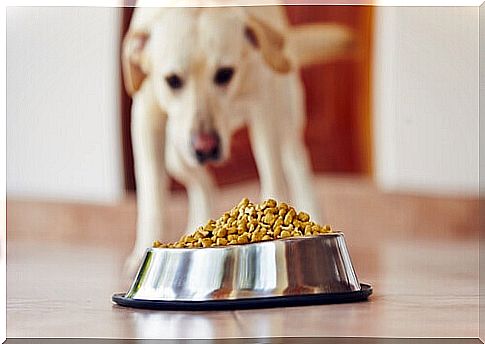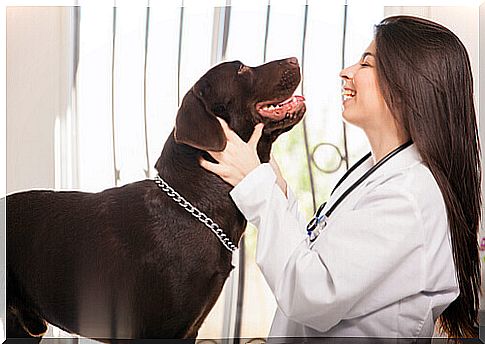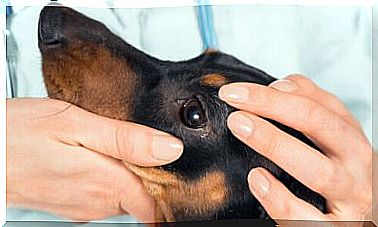Dogs, Food Intolerances And Allergies

It is not uncommon for animals to develop different types of reactions to food, often leading the owners to have to take counter measures to avoid the most unpleasant scenarios. Later we will talk about the intolerances that dogs develop towards certain foods.
It is often said that pet owners confuse food intolerances and allergies; it is therefore worth making a clear distinction before continuing.
Intolerance and allergy are not the same thing
Intolerances and allergies have different causes and, in some cases, have completely distinct symptomatic pictures. While allergies, depending on the force with which they occur, manifest themselves with inflammation, itching and problems with the skin and fur of the animal, intolerances cause vomiting, gas or diarrhea at the slightest contact with food.
Allergies are triggered by a predisposition developed by the animal’s own organism towards certain allergens present in food. In general, each part of any food is potentially an allergen. Some of the most common foods to be allergic to are dairy products, red meats, some grains, chicken, and eggs. The clinical picture comes to light easily, as these mainly affect the skin and digestive tract.
On the other hand, intolerances occur as rapid and violent reactions to the inability of the body to be able to assimilate a certain type of food. Among the most common intolerances are those to lactose, which cause an accumulation of gas in the intestine, abdominal pain and vomiting. The body will reject these foods and the animal’s state of mind will be affected. You will see him irritable and hyperactive. Similarly, weight loss can be observed if these foods are consumed for a long time.
Treatment

Based on the particular food allergy or intolerance that, for various reasons, affects the dog, the treatment in both cases is the same: remove the harmful food through an elimination diet.
Elimination diets have as their main objective to find a new food base, which allows you to replace your pet’s previous diet, using a new set of foods. This requires a total commitment from the owner of the dog, since it will totally depend on his dedication during this period, which must last at least 8 weeks, the success or failure of the diet. In fact, you will have to find new foods, replace them and be able to maintain the diet long enough, to make the dog get used to it. The choice will have to fall on foods that the dog has never eaten before.
These diets can be based as much on hypoallergenic feeds as on a homemade diet, although you must always keep in mind that the products that you can easily find in the supermarket, do not always deserve great trust.
Many of the products that are sold in supermarkets, and that are passed off as hypoallergenic, actually are not, contain beef or poultry (which are actually a great risk for dogs with a history of allergies or intolerances), as well as to soy and, in some cases, even rice. Therefore, if you decide to opt for a feed-based diet, we suggest you buy it at your trusted veterinary center or only one of the brands they recommend.
Elimination diets often consist of one type of carbohydrate and one type of protein. Protein is very important as it will provide your dog with the nutrients it needs; but remember that it must always come from the same source. If the source of protein is an uncommon meat (beef, poultry or pork), animals often have allergic or intolerant reactions to its components. In general, venison is used as a protein source for dogs that have experienced adverse reactions to other types of meat.
Another thing forbidden during the eight-week elimination diet are treats and treats, as they often have beef or pork in their ingredients or, in their absence, flavorings that contain other allergens. If the elimination phase exceeds eight weeks and your dog shows no signs of improvement, you will need to add vitamins to his diet to compensate for any nutritional imbalance.
The vet, your best ally

As always, before subjecting your dog to any type of treatment, such as a diet, you should consult with your veterinarian. The best thing is to contact someone who knows the medical history of your four-legged friend in detail , as they will be able to provide you with the best guidelines on how to organize the elimination phase and any complementation phase, which you will need to follow. passed the first.









